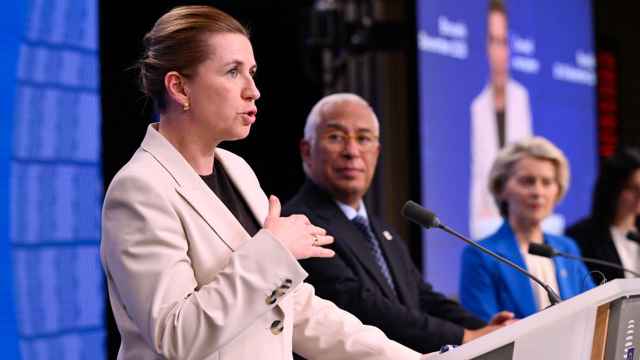The Finance Ministry wants to close a loophole in legislation that allows commercial real estate owners not to pay taxes on revenue from property sales, ministry officials and legal experts involved said.
The measure is also a part of the government plan to promote the deoffshorization of the Russian economy, providing for introducing changes to the Tax Code as early as the second quarter of this year, Vedomosti reported Wednesday.
The idea to collect taxes on revenue from the sale of Russian real estate held by offshore companies originates from Moscow City Hall, a Finance Ministry's official said.
A tax on revenue from sales of real estate may become an important source of revenue for regional budgets, which would be entitled to almost all proceeds. The Moscow government would become the main beneficiary from the new legislation given the fact that most valuable real estate is concentrated in the capital, the report said.
Real estate investments in Russia rose by $2 billion last year to reach $7 billion, commercial real estate company CBRE said. Investors were actively buying expensive assets — those worth over $300 million, which constituted 40-50 percent of all investments in real estate from 2010 to 2013, Jones Lang LaSalle said.
But those deals usually do not fill local budgets because in eight out of ten transactions owners are selling offshore companies that own the real estate assets, and not the property itself. This allows them to pay income taxes abroad.
The Finance Ministry first attempted to close the legal loophole in 2002 by introducing an amendment to the Tax Code obliging foreign companies to pay taxes on income received from sales of local companies in Russia if real estate constituted over half of their overall assets. But that requirement could easily be circumvented, says Denis Shchekin, a partner with law firm Shchekin and Partners, by selling a foreign-based company rather than its local subsidiary.
Now the ministry also wants to collect taxes on revenues from sales of foreign business structures if they own real estate in Russia indirectly by extending the law to all, not just local, business establishments as well as companies that own real estate assets indirectly.
Neither the Finance Ministry, nor the Moscow government has assessed the potential impact of the proposed legislation on budget revenues. Vladimir Sergunin, director of real estate consultancy Colliers, said that the move could alter the existing local market for real estate transactions since increased expenses due to payment of local taxes will affect prices and lower the general profitability of local assets.
A Message from The Moscow Times:
Dear readers,
We are facing unprecedented challenges. Russia's Prosecutor General's Office has designated The Moscow Times as an "undesirable" organization, criminalizing our work and putting our staff at risk of prosecution. This follows our earlier unjust labeling as a "foreign agent."
These actions are direct attempts to silence independent journalism in Russia. The authorities claim our work "discredits the decisions of the Russian leadership." We see things differently: we strive to provide accurate, unbiased reporting on Russia.
We, the journalists of The Moscow Times, refuse to be silenced. But to continue our work, we need your help.
Your support, no matter how small, makes a world of difference. If you can, please support us monthly starting from just $2. It's quick to set up, and every contribution makes a significant impact.
By supporting The Moscow Times, you're defending open, independent journalism in the face of repression. Thank you for standing with us.
Remind me later.





